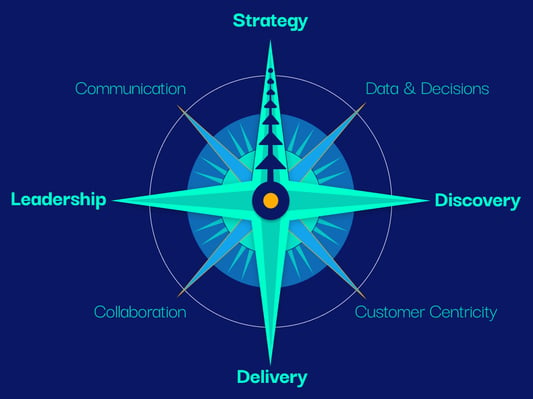"Nonononono, don’t put your foot there! That is very dangerous," I exclaimed. The kid looked at me, his expression oscillating between a puzzled question mark and an air of nonchalance that seemed to imply, "Maybe for you." But let’s rewind for a moment. I was assisting with judo classes for beginners, playing the role of a safety officer. My task was to ensure they didn't collide into each other and to prevent them from placing their joints in ways that could cause irreparable damage during practice.
As we went through the motions of a particular technique, people appeared to grasp the concept and the underlying physics. However, when it came time to put theory into practice, challenges arose. The hidden intricacies only revealed themselves during sparring sessions. While my brain urged, "You lack skill, young man," my lips found a more positive way to convey the sentiment.
Several hours later, I found myself preparing for the judo Dan exams. Having already attained a black belt in jiu-jitsu, I held a fair amount of confidence in my abilities. "Nonononono, you're doing it wrong!" my sensei's voice echoed, followed by an explanation that triggered the thought, "You lack skill, old man."
The truth is, it's okay to lack skill
Whether we're talking about martial arts or product management, the reality is that we all begin with deficiencies in various areas. We all require training and, more importantly, guidance to direct our energy effectively. Should our focus be on strategy, discovery, data analysis, decision-making, the building process, or the go-to-market strategy? Have we truly embraced a customer-centric approach? Have we effectively communicated our product vision and brought others on board?
The list goes on, but the essence remains the same. Product Management is a multifaceted endeavour, often entered into from a particular professional background. Those from product marketing might excel in go-to-market strategies and communication. Individuals with an engineering background might focus on product development. Business-oriented individuals may lean toward data analysis and strategy. However, success demands proficiency in all these aspects.
Challenges in Product Management
Over the years, many individuals have transitioned into product owner roles without prior product management experience. Often, their training has been confined to the Scrum Framework. Don't get me wrong; I'm a fan of Scrum for its ability to expedite project delivery. I hold a special fondness for the Scrum Values as well. However, possessing knowledge of processes alone is not enough. Product management requires a broader skill set, and it's disheartening that this isn't always properly addressed. While I could launch into a diatribe about product trainers lacking practical experience, I already delved into this topic two years ago, and regrettably, little seems to have changed.
Addressing the Problem
So, let's dissect the issue at hand:
- What skills are imperative for effective product management?
- How can one gauge their proficiency in these areas?
- What avenues exist for improvement?
In this blog post, I'll delve into the first question.
A Model for Product Management
Judo boasts a systematic approach, categorizing techniques to facilitate separate study and subsequent integration. In contrast, product management lacks a singular defining model. Over time, I've attempted to devise a model that marries simplicity with sufficient detail to serve as a practical compass for skill development. Introducing the latest iteration:
Strategy
Product management is profoundly strategic, entwining business and product strategies. We navigate the realm of value creation, addressing Goal setting, Product vision, Product strategy, Positioning, Pricing, Strategic advantage, Product roadmaps, and Product Portfolio management, among others.
Discovery
Discovery entails uncovering the core problem we aim to solve and for whom. Essentially, we become "problem owners." Without a dedicated focus on discovery, we're mere feature factories. This sphere encompasses competitor analysis, identifying blue vs. red oceans, personas, empathy maps, and the jobs-to-be-done framework, among other techniques.
Delivery
While discovery is vital, a product realizes its value in the hands of customers. Thus, delivery exceeds product creation. Think of it as encompassing go-to-market strategies, marketing messaging, search engine optimization, managing project-based and iterative development (Scrum, Kanban), and cultivating transparency through tools like Obeya.
Leadership
Those in product management often grapple with the inverse of Spiderman's dilemma: "With great responsibility comes virtually no power." Yet, how do we mobilize others? It starts with self-awareness, evolving communication styles, and nurturing personal growth. Effective product management demands fostering the growth of fellow team members while also managing exceptionally skilled individuals. Leaders excel in coalition-building, stakeholder management, negotiation, and handling challenging conversations. They're well-acquainted with the psychology of persuasion.
The diagram above reveals intersections between these domains, often acting as supportive or adhesive elements to navigate the transitions.
Data & Decisions
The eternal chicken-and-egg conundrum. Quality decisions necessitate factual foundations, yet prompt decision-making fosters effective strategy execution. Skills required for this domain span Business value assessment, alignment with organizational goals, value maximization, financial acumen, metrics interpretation, dashboard creation, and analytics application. This aspect frequently bridges the gap between strategy and execution.
Customer Centricity
Already explored in XP is "the voice of the end customer," a concept manifest in design, interaction, feedback solicitation, and tangible impact. While closely linked to User Experience (UX), it embodies a product-oriented perspective. Expertise encompasses design principles, customer outcomes, collaboration with user groups, and a profound understanding of product usage patterns.
Collaboration
At its core, product work is collaborative. Our role involves uniting stakeholders to collectively deliver customer value. Those seeking to transcend delivery should focus on interactions with UX, marketing, sales, operations, data science, and executives. Cultivating and maintaining partnerships to facilitate outsourcing, insourcing, offshoring, and more becomes crucial. The management of contracts, governance, and compliance needn't evolve into a struggle but rather a seamless process.
Communication
Communication stands as a pivotal facet of your role as a product professional, rooted in the Latin verb "communicare" - "to make common." It involves interaction, reporting, forecasting for the business, adaptability in approach based on the audience, prowess in written and spoken communication, and the art of storytelling.
Embracing Skill Deficiency:
Considering the comprehensive scope, you might conclude that mastering all these aspects is an overwhelming endeavour. However, that's perfectly fine. The goal isn't to become a master in every domain but rather to consistently improve, much like the journey in martial arts. It's not about becoming the ultimate master; it's about surpassing your current self.
What works well in both scenario’s is feedback. So, in the upcoming week, whenever you receive feedback, in a retrospective, sprint review, coffee moment or regular 1-1 session with your manager: try if you can map the feedback back on the model. Where are your strengths and weaknesses? Where are your blind spots? Or as we used to say in customer support: “if the customer is not complaining anymore, it doesn’t mean the product is perfect; it means they stopped using it.”
Curious in how we put this model to work in our self-assessment? Check out the béta of our Compass!

